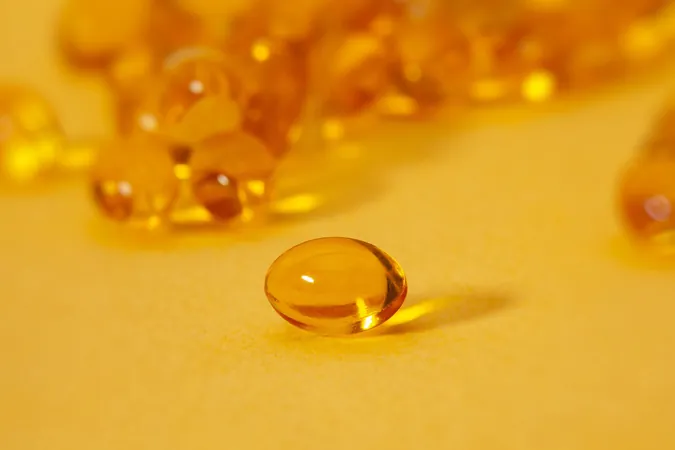
Groundbreaking Study Reveals Surprising Benefits of High-Dose Vitamin D for Early Multiple Sclerosis Patients!
2025-03-24
Author: Li
Significant Advancements in MS Treatment
In a significant advancement in the treatment of multiple sclerosis (MS), a team of researchers from CHU Nîmes, Université Montpellier, and multiple MS centers across France have uncovered that oral cholecalciferol, administered at a staggering dose of 100,000 IU every two weeks, drastically reduces disease activity in patients with clinically isolated syndrome (CIS) and early relapsing–remitting multiple sclerosis (RRMS).
Published in the prestigious journal JAMA, this study could pave the way for innovative treatment strategies. Multiple sclerosis often initiates with acute neurological episodes, including optic neuritis, transverse myelitis, or brainstem syndromes, leading to CIS. While CIS does not inevitably develop into MS, understanding the signs and treating them early can be crucial.
Vitamin D Deficiency and Its Implications
Remarkably, vitamin D deficiency has emerged as a significant risk factor for the onset and progression of MS. This trial is particularly enlightening as previous research has yielded mixed results regarding vitamin D supplementation's efficacy. Most studies prior focused on using vitamin D as a supplementary treatment alongside traditional therapies, particularly interferon beta. However, this new study aimed to explore the effects of using vitamin D as monotherapy for patients diagnosed with CIS.
The D-Lay MS Trial
The D-Lay MS trial was meticulously designed as a double-blind, placebo-controlled study that involved 316 participants. These individuals were aged 18 to 55 and had experienced the onset of CIS within the last 90 days. To be included, participants also needed to demonstrate certain clinical markers, including elevated cerebrospinal fluid oligoclonal bands and two or more visible lesions on MRI scans. With careful randomization, 163 participants received the high-dose cholecalciferol, while 153 were given a placebo over a span of 24 months.
Impressive Results and Outcomes
The primary outcome measured was disease activity, indicated by instances of relapse or the emergence of new or contrast-enhancing MRI lesions. The results were striking: only 60.3% of the patients on vitamin D experienced disease activity compared to 74.1% in the placebo group. The median time before any disease activity occurred was also substantially longer in the vitamin D group, highlighting its potential therapeutic effects.
Additionally, the study observed favorable outcomes in all secondary MRI parameters for those receiving vitamin D, including overall MRI activity and the presence of new T2 lesions. Cholecalciferol not only demonstrated the ability to reduce disease activity but also revealed its potential as an inexpensive and well-tolerated treatment option, especially in regions where access to standard disease-modifying therapies may be limited.
Future Directions
The researchers advocate for further investigations into vitamin D therapy, recommending trials that explore its potential as an add-on treatment for patients with severe vitamin D deficiencies, which could unlock new avenues for MS management.
Conclusion: A New Hope for MS Patients
This compelling research underscores the pivotal role vitamin D may play in combating multiple sclerosis and delivers a message of hope to patients and healthcare providers alike. With the right evidence and continued exploration, high-dose vitamin D might just be the game-changer in the quest for effective MS treatments!



 Brasil (PT)
Brasil (PT)
 Canada (EN)
Canada (EN)
 Chile (ES)
Chile (ES)
 Česko (CS)
Česko (CS)
 대한민국 (KO)
대한민국 (KO)
 España (ES)
España (ES)
 France (FR)
France (FR)
 Hong Kong (EN)
Hong Kong (EN)
 Italia (IT)
Italia (IT)
 日本 (JA)
日本 (JA)
 Magyarország (HU)
Magyarország (HU)
 Norge (NO)
Norge (NO)
 Polska (PL)
Polska (PL)
 Schweiz (DE)
Schweiz (DE)
 Singapore (EN)
Singapore (EN)
 Sverige (SV)
Sverige (SV)
 Suomi (FI)
Suomi (FI)
 Türkiye (TR)
Türkiye (TR)
 الإمارات العربية المتحدة (AR)
الإمارات العربية المتحدة (AR)